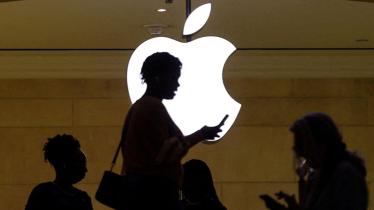Apple abandoned its decade-long electric vehicle (EV) project last week, shifting its focus to the emerging generative artificial intelligence (GenAI) sector. Banasree Purkayastha looks at the roadblocks the iPhone maker faced in its dream car project and how AI is key for tech giants right now
l Pulling the plug on Project Titan
On February 27, in an internal meeting, Apple said that it was pulling the plug on its electric vehicle project. Codenamed Project Titan, Apple had 2000 employees working on it for almost a decade. The project will begin winding down and a sizeable share of the team would be shifted to the artificial intelligence division spearheaded by executive John Giannandrea, where they would be focusing on advancing generative AI instead. Layoffs are also expected. At one time, media reports had said Apple was considering releasing its proposed car as early as 2024 or 2025. It then got pushed to 2028. News of the project had initially raised hopes that Apple may replicate the success of the iPhone. However, given the pivot from a steering wheel-free autonomous vehicle to a more conventional car with advanced driver-assistance features, the decision did not come as a surprise, and Apple share prices rose after the announcement.
l Making inroads into the EV market isn’t easy
With a cash pile of $162 billion, and having already spent around $10 billion on Project Titan, what made Apple abandon it? While social media has been flooded with hilarious comments on Apple’s much-vaunted dream car going nowhere, the reality is that the EV market is difficult to crack. In recent months, demand for EVs slowed down as borrowing costs remained high, making the market very competitive. Both Ford and General Motors have postponed plans to expand EV production. In January, Elon Musk’s Tesla, the forerunner in the EV market, had warned that its sales growth would be weaker in 2024. It has been cutting prices in Europe and China. The margins in this market are too small, even for a car with a $100,000 price tag. Only two major US carmakers — Tesla and Ford, and the former is only a recent entrant — have never gone bankrupt. Apple was never a car maker, didn’t have any real-world data on autonomous vehicles, nor the experience to accomplish that. And it does not have its maverick founder Steve Jobs at the wheel.
l EV research to find use in in-car systems
To be sure, Apple hasn’t entirely exited the vehicle sector. It had applied for 248 car-related patents in the last 20 years. The new version of its CarPlay infotainment system is expected this year. First launched in 2014, CarPlay enables drivers to mirror a watered-down version of iOS to their car’s infotainment system. The update will see expanded functions for Apple’s in-car user interface. This includes providing content over multiple screens, camera integration, vehicle monitoring, climate control, and an array of driving-related data such as speed, fuel efficiency, and energy efficiency, temperature, where much of its work at the abandoned EV project is likely to find use. Apple has been looking at opportunities beyond the iPhone and iMacs, including its new Vision Pro virtual reality headset. Much of its learnings about artificial intelligence and automation on Project Titan can be applied to other technologies that are being researched, including AI-powered AirPods with cameras, robot assistants and augmented reality.
l Stepping on the AI pedal
Shifting its focus to generative AI (GenAI) is a smart move, as AI is where all the action is today. The global artificial intelligence market is expected to grow at a CAGR of 37.3% between 2023 and 2030. According to industry watchers, generative AI is likely to start creating traction, traffic, and revenue for big technology companies this year. Apple has been conspicuous by its silence in this market though there are reports that it has been developing an AI model called Ajax. Its most popular AI system is Siri, the voice assistant that ushered the trend among tech companies, and it has been weaving AI into its software for a long time. The iPhone maker has acquired more than 20 AI and machine learning startups since 2017 and has been incorporating the technology in new product features.
At the company’s annual shareholders meeting last week, CEO Tim Cook said that Apple will “break new ground” on GenAI this year. Media reports say Apple is planning to upgrade Siri and iOS’ built-in search tool, Spotlight, with GenAI models, to equip these to answer complex questions and handle multi-turn conversations. The iPhone maker is expected to unveil new AI tools at its June developer conference. All eyes will be now on what Apple comes out with in the generative AI segment.
